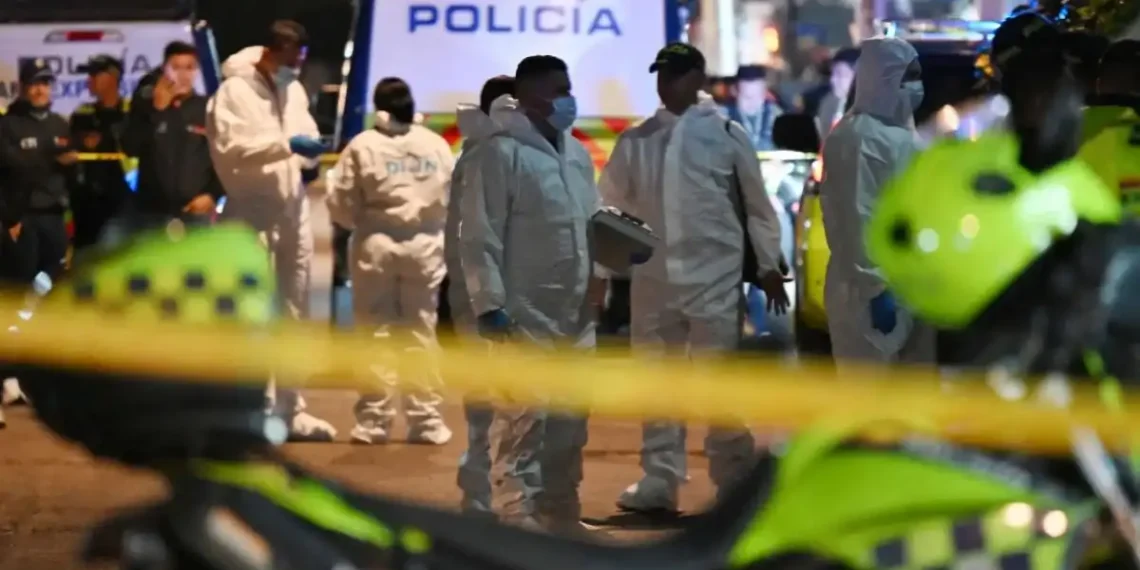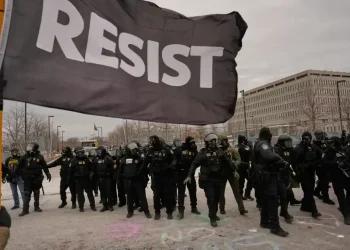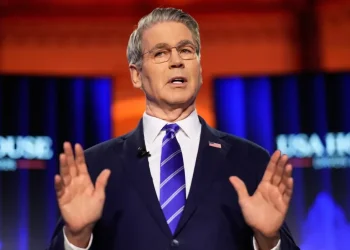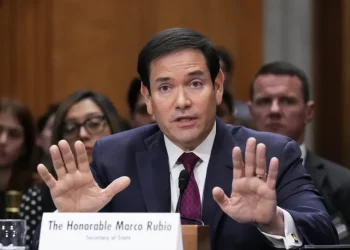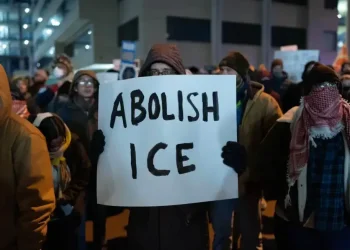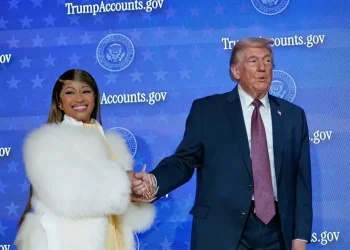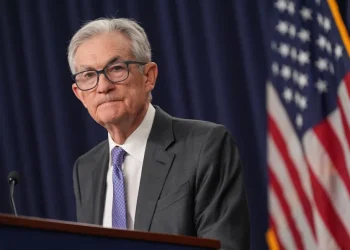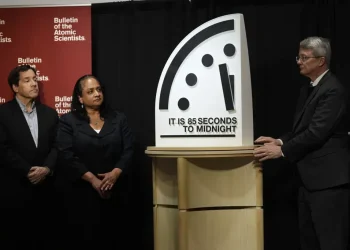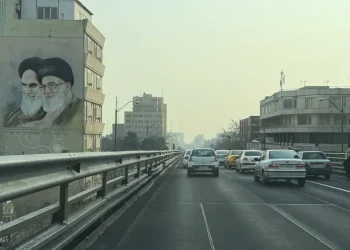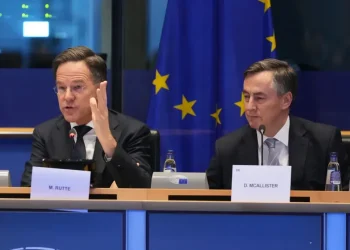Colombian Presidential Hopeful Miguel Uribe Critically Wounded in Bogota Shooting: A Stark Reminder of a Nation’s Troubled Past
Bogota, Colombia — Miguel Uribe, a 39-year-old senator and rising figure in Colombia’s political arena, was critically wounded after being shot twice at a campaign event in Bogota’s Fontibon district on Saturday afternoon. The attack sent shockwaves throughout Colombia and reignited painful memories of a violent past that continues to shape the country’s fragile democracy.
Uribe, who announced his presidential ambitions just last year, remains in critical condition in hospital. Authorities have arrested a 15-year-old suspect armed with a Glock pistol at the scene. As the nation holds its breath, many are reflecting on the historical and personal shadows surrounding this tragic event.
A Life Marked by Political Legacy and Personal Tragedy
To truly understand the impact of this attack, one must delve into Miguel Uribe’s complex family history — a tapestry woven deeply into Colombia’s turbulent political landscape.
Uribe is the grandson of Julio César Turbay Ayala, Colombia’s president from 1978 to 1982, a period marked by political unrest and violence as the country struggled with guerrilla warfare and the rise of drug cartels. Turbay’s administration controversially used “Security Statutes” to clamp down on insurgents, a legacy debated to this day.
More poignant, however, is Uribe’s connection to a tragic chapter in Colombia’s recent history through his mother, Diana Turbay, a respected journalist who was kidnapped by the notorious Medellín cartel in 1990. She died during a botched rescue operation in 1991, a loss that profoundly shaped Uribe’s worldview and political path.
His grandmother, Nydia Quintero de Balcázar, has been a tireless advocate for social justice, founding Solidarity for Colombia, a non-profit organization aimed at supporting victims of violence and fostering peace.
Against this backdrop of personal loss and political complexity, Uribe’s own career took shape. A Harvard graduate, he entered politics with a firm belief in strengthening security and encouraging foreign investment. In 2022, he won a Senate seat, quickly becoming a prominent voice within Centro Democrático, the country’s largest opposition party.
Forgiveness Over Revenge: A Defining Philosophy
In a poignant moment last October, Uribe announced his presidential bid at the very site where his mother lost her life. His message struck a deep chord:
“I could have grown up seeking revenge, but I decided to do the right thing: forgive, but never forget.”
This personal philosophy echoes a broader desire among many Colombians to move beyond decades of conflict while acknowledging the scars left behind.
The Centro Democrático has not yet confirmed its official candidate for the 2026 presidential race, but Uribe is widely regarded as a frontrunner — symbolizing both continuity and hope within a party traditionally seen as conservative and security-focused.
A Nation’s Democracy Under Threat
The shooting of a leading political figure is no isolated incident in Colombia. The country’s recent history is rife with violence against politicians, especially those who dare to challenge the status quo.
The late 1980s and early 1990s saw the assassinations of multiple presidential candidates and key political leaders amidst escalating violence from drug cartels and armed insurgent groups. This climate of fear shaped the generation of leaders who now govern the country.
Miguel Uribe is part of this new generation—politicians who are the sons and daughters of victims of political violence. His story mirrors that of Bogota’s Mayor Carlos Fernando Galán, whose father, Luis Carlos Galán, was assassinated in 1989 during a presidential campaign. Likewise, María José Pizarro, a prominent left-wing senator, is the daughter of Carlos Pizarro Leongómez, a presidential candidate killed in 1990.
This cycle of violence has left a deep imprint on Colombia’s political culture, where fear and resilience coexist.
Political Reactions: Unity Amid Division
The attack drew immediate condemnation across Colombia’s political spectrum and from global leaders.
President Gustavo Petro, a leftist who has often clashed politically with Centro Democrático, expressed sorrow and solidarity on social media:
“I don’t know how to ease your pain. It is the pain of a mother lost, and of a wounded homeland.”
Colombia’s Foreign Ministry called the shooting “a direct affront to democracy, respect for differences, and the free exercise of politics,” urging a thorough investigation.
The U.S. Secretary of State Marco Rubio condemned the attack as “a direct threat to democracy,” criticizing what he called “violent leftist rhetoric” from the Colombian government for heightening tensions. He urged all parties to de-escalate inflammatory language.
Within Colombia, former presidents Ernesto Samper, Álvaro Uribe Vélez, Juan Manuel Santos, and Iván Duque all denounced the violence, signaling broad political consensus on the need to safeguard democratic processes—even amid deep political divides.
Ecuador’s President Daniel Noboa also voiced support for Uribe’s family, condemning “all forms of violence and intolerance” in the region.
What This Means for Colombia’s Future
Miguel Uribe’s shooting is more than a personal tragedy—it’s a stark reminder that Colombia’s democratic institutions remain vulnerable. Political violence has been a constant shadow over the country’s progress, and each attack reverberates far beyond the immediate victim.
As Uribe fights for his life, Colombia must confront uncomfortable truths about its past and present, and recommit to creating a political climate where ideas, not bullets, determine the future.
The coming weeks will test not only Uribe’s resilience but also the nation’s ability to uphold peace and democracy amid ongoing challenges.
This article was rewritten by JournosNews.com based on verified reporting from trusted sources. The content has been independently reviewed, fact-checked, and edited for accuracy, neutrality, tone, and global readability in accordance with Google News and AdSense standards.
All opinions, quotes, or statements from contributors, experts, or sourced organizations do not necessarily reflect the views of JournosNews.com. JournosNews.com maintains full editorial independence from any external funders, sponsors, or organizations.
Stay informed with JournosNews.com — your trusted source for verified global reporting and in-depth analysis. Follow us on Google News, BlueSky, and X for real-time updates.
